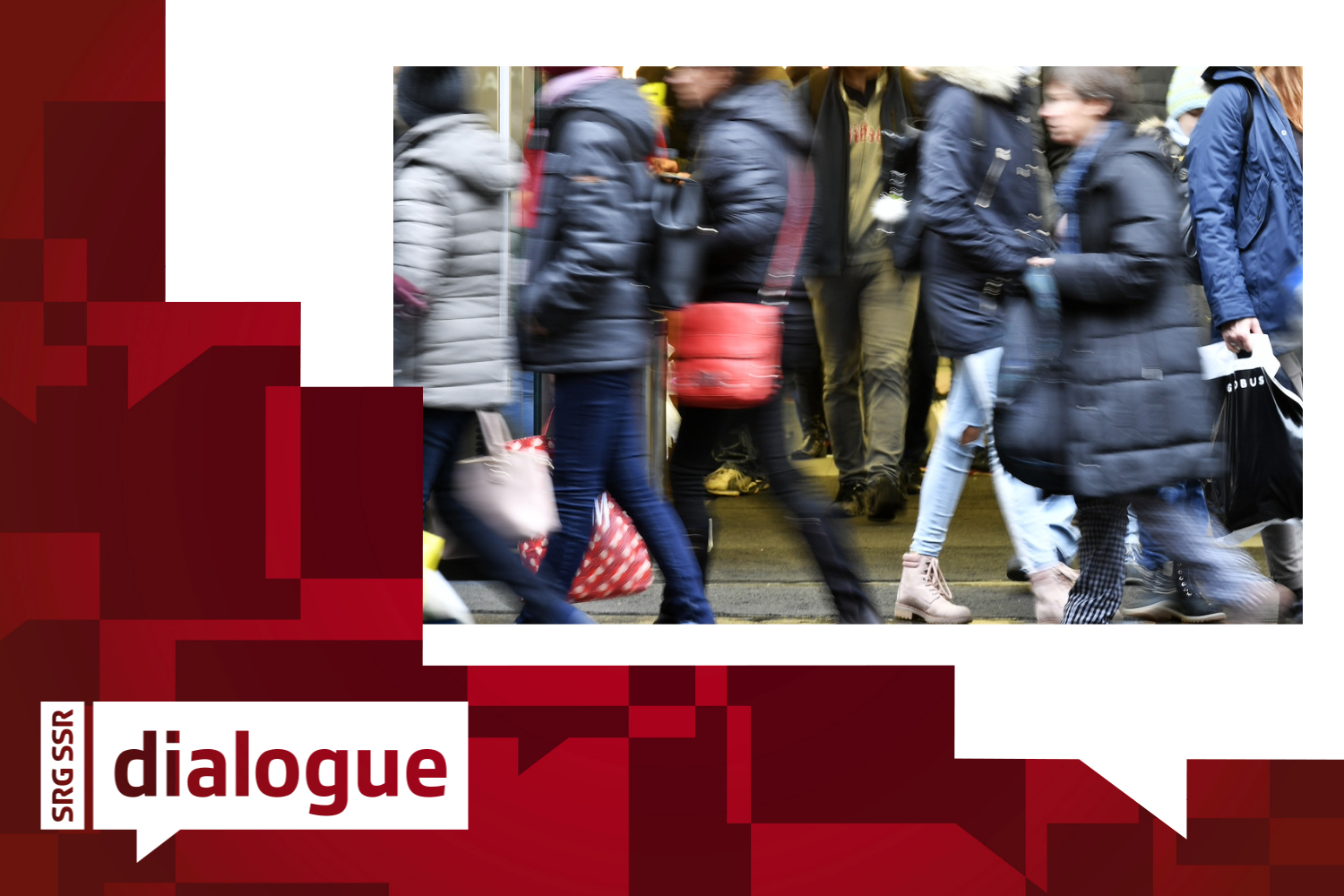Meet the foreigners who make up a quarter of the Swiss population

For generations, Switzerland has been a home-from-home for a significant number of foreigners who live and work in the Alpine state.
Non-Swiss residents currently make up 27% of Switzerland’s 8.9 million population. Most come from neighbouring countries, such as Italy and Germany. There is also a significant Portuguese population and others from further abroad.
+ Read about a breakdown of Switzerland’s population
SWI swissinfo.ch takes a look at the composition of this foreign population and what brings them to Switzerland.
The basic facts
At the end of 2023, some 2.3 million foreign nationals were living in Switzerland – about a fifth of whom was born in the country.
Net immigration increased 11.7% last year, compared to 2022, with new arrivals outstripping departures by 98,851 people.
The proportion of foreigners living in Switzerland is a lot higher than a century ago, when this group made up 10% of the whole population.
This figure dropped dramatically during the Second World War, but it picked up again shortly afterwards, and was given a further boost in 2002 when Switzerland opened its borders to the European Union by adopting the Free Movement of Persons principle.
Workers from the EU or the European Free Trade Association (EFTA) make up the largest group of immigrants each year, accounting for 72% of all new arrivals in 2023.
Who is coming to Switzerland?
Post-war immigration was mainly driven at first by the arrival of many Italians seeking better conditions than their war-ravaged country.
Italians still make up the largest proportion of foreign residents in Switzerland (14%), followed by Germans (13.4%), Portuguese (10.6%) and French (6.8%).
It’s unsurprising that most immigrants arrive from countries bordering Switzerland, taking advantage of both the proximity and a shared language.
For example, Switzerland is the preferred destination of Germans who choose to live abroad. The number of Germans who crossed the border to live and work in Switzerland increased dramatically after the Swiss-EU pact in 2002.
Portuguese nationals have also profited from the Free Movement of Persons deal, particularly after the 2008 financial crash and resulting recession. Between 2008 and 2012, the number of Portuguese immigrants to Switzerland rose 20%.
+ Why Portuguese seek work in Switzerland
However, the proportion of Portuguese immigrants to Switzerland has since fallen from 12% of all nationalities in 2013 to 5.2% last year, according to the Portuguese Emigration Observatory. Swiss statistics also show more Portuguese leaving than arriving in some years since 2015.
Workers from so-called third countries, such as the United States, China, India and Britain, account for just under 10% of total immigration. The number of non-EU/EFTA work permits is limited to around 12,000 each year.
Another category of immigrants are asylum-seekers. Last year, Switzerland granted temporary asylum to more than 18,000 Ukrainians and approved some 6,000 other asylum applications.
Why Switzerland?
Switzerland is home to many multinational companies and is considered one of the best locations to live and work, according to numerous expat surveys.

More
Expats’ love-hate relationship with Switzerland continues
Survey respondents cite Switzerland’s high wages, outstanding landscape and relatively clean environment, efficient infrastructure, stability, peace and security as advantages.
However, some also complain about the high cost of living and the difficulty of interacting with locals.
What do the Swiss think of foreign residents?
As in many countries, opinions are divided.
On the one hand, the business sector welcomes foreign workers to fill highly skilled positions, which helps drive the economy forwards.

More
Immigration in Switzerland: a threat or a chance for prosperity?
But the growing proportion of non-Swiss residents has also driven complaints from trade unions, worried about wage dumping, and right-wing political parties, which fear dilution of Swiss national identity.
In 2014 voters backed a Swiss People’s Party proposal to curb immigration. This resulted in tensions between Switzerland and the EU that are still unresolved.
Six years later, another attempt to restrict immigration from the EU was rejected at the ballot box. But the thorny debate over immigration still rumbles on in Switzerland.
Edited by Balz Rigendinger/ts

In compliance with the JTI standards
More: SWI swissinfo.ch certified by the Journalism Trust Initiative









You can find an overview of ongoing debates with our journalists here . Please join us!
If you want to start a conversation about a topic raised in this article or want to report factual errors, email us at english@swissinfo.ch.